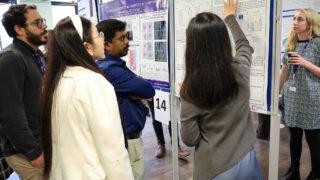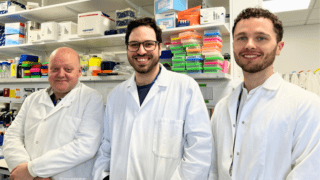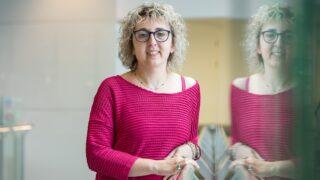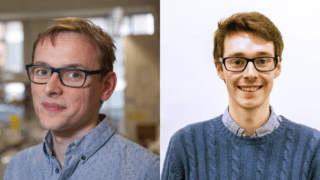Tag: Computer models
Search News
Categories
Archives
Coming together to tackle pancreatic cancer – The London Pancreas Workshop
29th June 2023
Experts in the field converged to discuss the latest advances in pancreatic cancer
Read moreResearchers shed light on the mystery of liver cells’ origins
30th May 2023
Understanding how new liver cells are created could inform how and why cell growth spirals out of control in cancer
Read moreWelcoming Professor Francesca Ciccarelli to the BCI
24th April 2023
Professor Francesca Ciccarelli will be joining Barts Cancer Institute to lead our Centre for Cancer Genomics & Computational Biology.
Read moreUnderstanding the role of cancer’s circular genome in tumour evolution
23rd September 2022
New research, co-led by Dr Benjamin Werner from Barts Cancer Institute at Queen Mary University of London, indicates that the circular DNA structures present in around a third of cancers lead to extensive genetic diversity within tumours, giving them the ability to adapt rapidly to environmental stress and resist targeted cancer treatment.
Read moreTurning back the molecular clock: Tracing cell lineage
6th January 2022
Researchers from Barts Cancer Institute at Queen Mary University of London, the Moffitt Cancer Center and the University of Southern California, have developed a new method that measures subtle changes to the genetic code of cells (called DNA methylation) to study the dynamics of what happens to cells within our bodies over time. The new method, published in Nature Biotechnology, provides a way to measure the birth and death of human cells, making it possible to trace cell lineage and evolution.
Read moreAI algorithm identifies most effective drugs for liver cancer
1st November 2021
Researchers from Barts Cancer Institute at Queen Mary University of London and King’s College Hospital have shown that a new computer-based algorithm can rank drugs used to treat primary liver cancer, based on their efficacy in reducing cancer cell growth.
Read more





